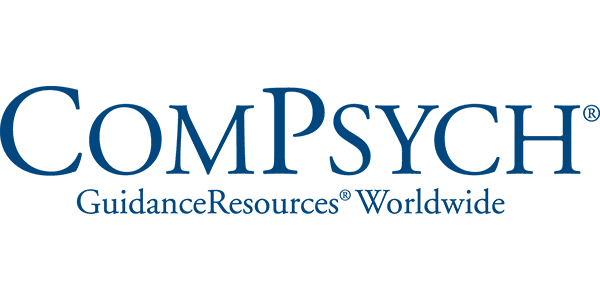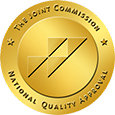If you or a loved one is struggling with an opioid use disorder, the time to act is now. Contact us to get started on the recovery journey.
Opioid use disorder in young adults negatively affects every area of their life. Over time, using opioids for pain or recreationally can lead to severe addictions that threaten young people’s mental and physical health, relationships, finances, and goals for the future.
Newport Institute’s opioid addiction treatment for young adults is designed to create long-term recovery by addressing the underlying issues that catalyze problem opioid use. Our nationwide opioid treatment programs support young people ages 18–35 to recover from opioid use disorder by processing past trauma, building resilience and self-worth, and developing healthy coping skills.
Opioid Treatment for Young Adults
The most effective opioid treatment options address the underlying causes of prescription opioid misuse, not just the drug use itself. In order for opioid rehab to result in sustainable recovery, young adults need comprehensive opioid addiction treatment that acknowledges and treats mental health challenges.
Furthermore, effective treatment is vital, because an opioid overdose can be lethal. When a young adult overdoses on opioids, or mixes opioids with alcohol, it can slow down their heart rate and breathing to the point that they can go into a coma or die.
Opioid use disorder often develops after a young person uses prescription opioids to deal with a sports injury or other medical issue. And before they realize the risk, they develop a chemical dependency.
Questions?
All calls are always confidential.
Causes of Opioid Use Disorder
Anyone can be vulnerable to opioid addiction. However, there are a number of factors that increase the likelihood that a young adult will develop an addiction that requires opioid rehab. These factors include the following:
- A history of mental health problems, such as trauma, depression, or anxiety
- Witnessing a family member overdose
- Having a friend group that misuses prescription drugs
- Dealing with acute or chronic pain as a result of a sports injury or other physical health problem
What are opioids and how do they work?
Opioids are a category of drugs that includes synthetic opioids such as fentanyl and prescription pain relievers like oxycodone, hydrocodone, codeine, and morphine. The illegal drug heroin is also an opioid.
Derived from the opium poppy, opioids work by stimulating the body’s natural pain-relief chemicals, causing a feeling of euphoria and flooding the brain with dopamine. These repeated dopamine rushes can cause cravings for the drug and eventually create opioid addiction.
Know the Facts
Young adults are more than twice as likely as teens to have an opioid use disorder.
Signs and Symptoms of Opioid Addiction in Young Adults
Here are some of the most common signs of opioid misuse:
- Nausea
- Constipation
- Drowsiness
- Confusion
- Difficulty breathing
- Slurred speech
- Poor coordination and reduced motor skills
- Lying about opioid use
- Using more of an opioid medication than was prescribed
- Obtaining opioids illegally without a prescription
- Financial problems as a result of opioid misuse
- Inability to meet work or academic responsibilities
- Withdrawal from relationships with family or friends
- Problems in romantic relationships
- No longer taking pleasure from activities and hobbies that used to be enjoyable
- Experiencing opioid withdrawal symptoms when you stop using it, such as body aches, chills, and diarrhea
Is there a connection between opioid misuse and mental health?
Yes, opioid misuse and mental health are connected. In fact, problem substance use of any kind is usually a behavioral symptom of an underlying mental health condition. Young adults who misuse prescription opioids typically use the drug to self-medicate emotional pain. One study found that people who misused prescription opioids were between 40 and 60 percent more likely to have suicidal thoughts.
Even if they originally started using prescription opioids for an injury or chronic pain, most young adults who develop an opioid addiction are suffering from depression, anxiety, trauma, or another mental health disorder. Research shows young adults with mood or anxiety disorders are twice as likely to misuse opioids.
Because mental health disorders can create physical pain, they may use opioids to address this issue, and then become dependent on the drug. In fact, more than half of all opioid prescriptions in the United States are written for patients with anxiety or depression. Furthermore, opioid use can catalyze or exacerbate mental health problems. Research shows that opioid medications can contribute to an increase in depressive symptoms.
Diagnosis and Treatment for Opioid Use Disorder in Young Adults
Diagnosis of opioid addiction in young adults involves a complete physical and mental health assessment. A substance use evaluation may include any or all of the following:
- A physical exam to determine how substance use is impacting your physical health in addition to mental health
- Lab tests to find out whether substances have affected the body’s systems
- In-depth interview with a physician, psychiatrist, or other addiction specialist or healthcare provider regarding the frequency of your drug use and your behaviors regarding drug use
- A mental health screening that pinpoints underlying symptoms of trauma, anxiety, and/or depression
- Discussion of the appropriate level of care for opioid rehab—a residential program, an inpatient rehab, partial hospitalization, or an intensive outpatient program
What will I experience during opioid treatment?
The first step in treating drug addictions is detoxing from substances. This is a medically supervised process of ridding the body of drugs. Because drug use creates a chemical dependency, over time acute opioid withdrawal can cause nearly intolerable physical and mental symptoms. Therefore, a detox program with medical care and sometimes medication-assisted treatment is usually necessary. Newport Institute partners with preferred detox programs to support young adults as they begin a drug rehab program. We also offer withdrawal management at some of our young adult locations as part of our comprehensive treatment of substance use disorder.
Once detoxing is complete, the real work of opioid addiction treatment begins. The best substance use disorder treatment programs are staffed by medical experts as well as mental health professionals, including clinical therapists, recovery counselors, and experiential therapists. Newport Institute takes this integrated approach. Our team of addiction specialists includes psychiatrists, medical doctors, individual therapists, family therapists, life skills coaches, and recovery counselors. Our addiction treatment addresses all aspects of a young adult’s physical and mental health to support long-term healing and recovery.
In addition, our young adult rehab helps clients uncover the root causes of their opioid misuse and learn coping and emotion-regulation skills to support ongoing recovery. In therapy sessions with addiction specialists, young adults develop healthy ways to work with the challenging emotions and stressors that this age group faces. One of the primary benefits of opioid addiction treatment in a residential treatment center is connection with others who are also on the healing journey.

Young Adult Opioid Rehab at Newport Institute
At Newport Institute, we address drug addiction treatment and substance use prevention by helping young adults process past trauma and replace destructive behaviors with healthy coping skills. Rather than addressing symptoms alone, we guide young adults to dig deeper so they can create the foundation for a thriving, substance-free life.
To achieve long-term, sustainable recovery, young people need specialized mental health services to understand and address the internal and external conditions that set the stage for problem drug use. Hence, our integrated approach to young adult opioid rehab takes into account every aspect of an individual—their physical, emotional, relational, psychological, and spiritual health.
Newport addiction treatment includes individual therapy, group therapy, family therapy, life skills programming, and experiential activities like Adventure Therapy, yoga, art, and music. We have residential treatment programs for young adults around the country, as well as Partial Hospitalization and Intensive Outpatient Programs.
Know the Facts
People who stay in treatment for substance use disorder for at least three months have substantially better outcomes and lower relapse rates.
What’s Included in Our Opioid Treatment Programs for Young Adults
Newport Institute’s residential young adult opioid addiction treatment programs offer more than a typical opioid rehab. During your stay, you will experience powerful healing modalities guided by caring, compassionate experts. Each client has a treatment team made up of addiction specialists who design a tailored treatment plan that includes clinical milestones, specialized counseling, and a variety of different therapy sessions.
Our residential treatment plans for both young adults and older adults may include:
Clinical Modalities
- Motivational Enhancement Therapy to break through resistance to treatment
- Cognitive Behavioral Therapy to shift unhelpful thinking and build coping skills
- Dialectical Behavioral Therapy to increase stress tolerance
- Marital and family counseling to create greater harmony among family members
- Recovery counseling to build new, healthy habits
Experiential
- Adventure Therapy to foster peer community
- Yoga and meditation to increase mindful self-awareness
- Music therapy as a form of self-expression
- Culinary arts to strengthen self-care skills
- Art therapy to support emotional processing
- Mixed Martial Arts to build self-mastery and confidence
Newport Institute also has a robust alumni program, providing support groups and resources to help ensure ongoing recovery.
Where to Find Our Opioid Treatment Centers
Newport Institute locations are in close proximity to multiple cities across the United States. We treat young adults ages 18–35 (depending on location) and their families from all 50 states and abroad, providing a full continuum of care. Our residential and outpatient treatment centers offer serene environments, within beautiful natural settings, where young adults can find long-term healing and recovery from opioid addiction and related mental health conditions.
Newport Institute’s opioid treatment programs for ages 18–35 are located in Northern and Southern California, Connecticut, and Minnesota, with more programs in development in areas where young adult mental health and substance use treatment are most needed.
Get Started Now
Fill out the form above to set up a confidential conversation with one of our admissions experts. We realize that the hardest part of seeking treatment is getting started, and we’re here to help make that part easier, 24 hours a day, 7 days a week.
Concerned about how to pay for addiction treatment? Newport Institute works with most major insurance companies, both in and out of network, and we have a dedicated team of specialists to help you navigate your coverage.







Frequently Asked Questions
What is the first line treatment of opioid addiction?
What are the treatment recommendations for opioid use disorder?
What are the 4 As of opioid therapy?
What are the three waves of opioid addiction?



